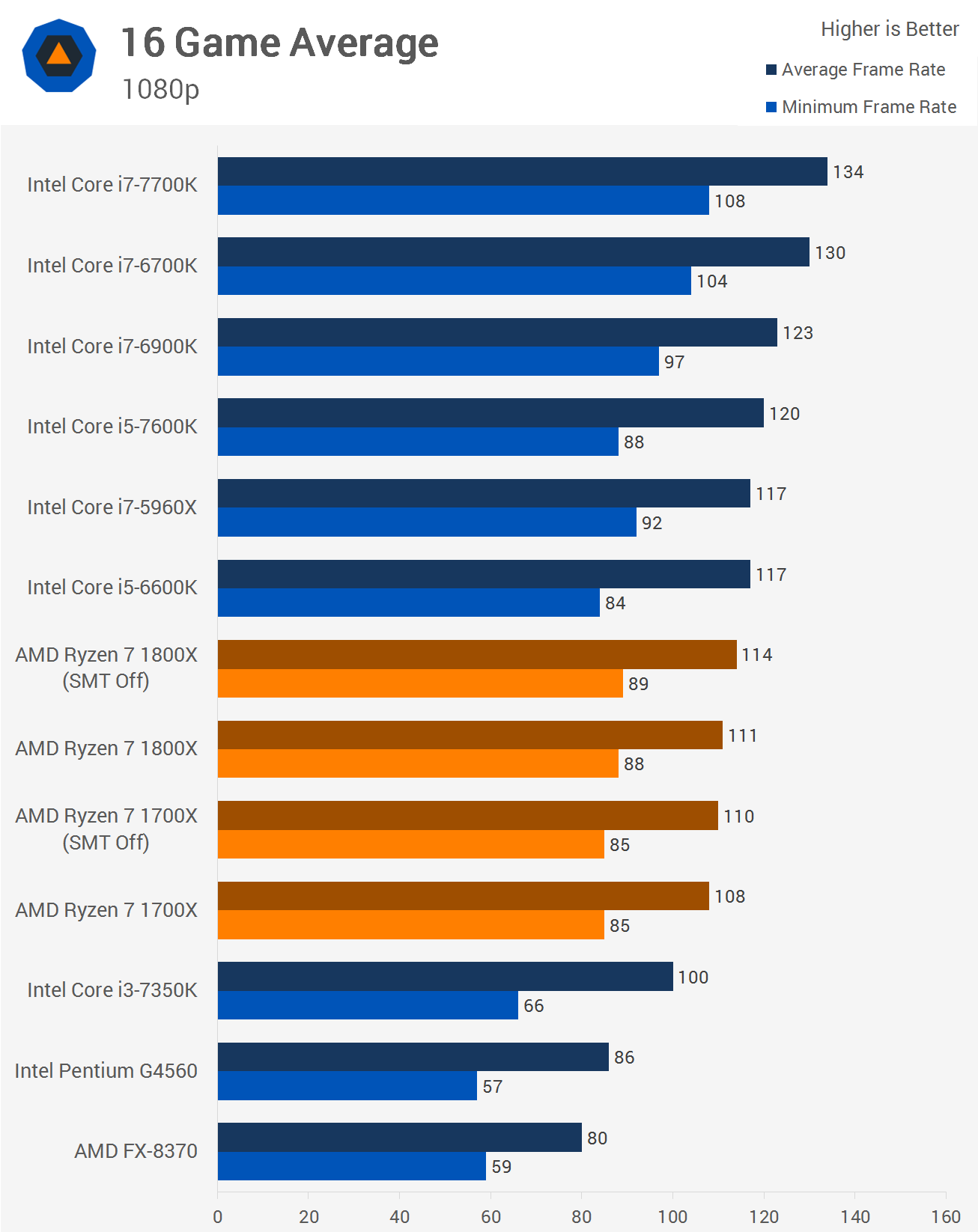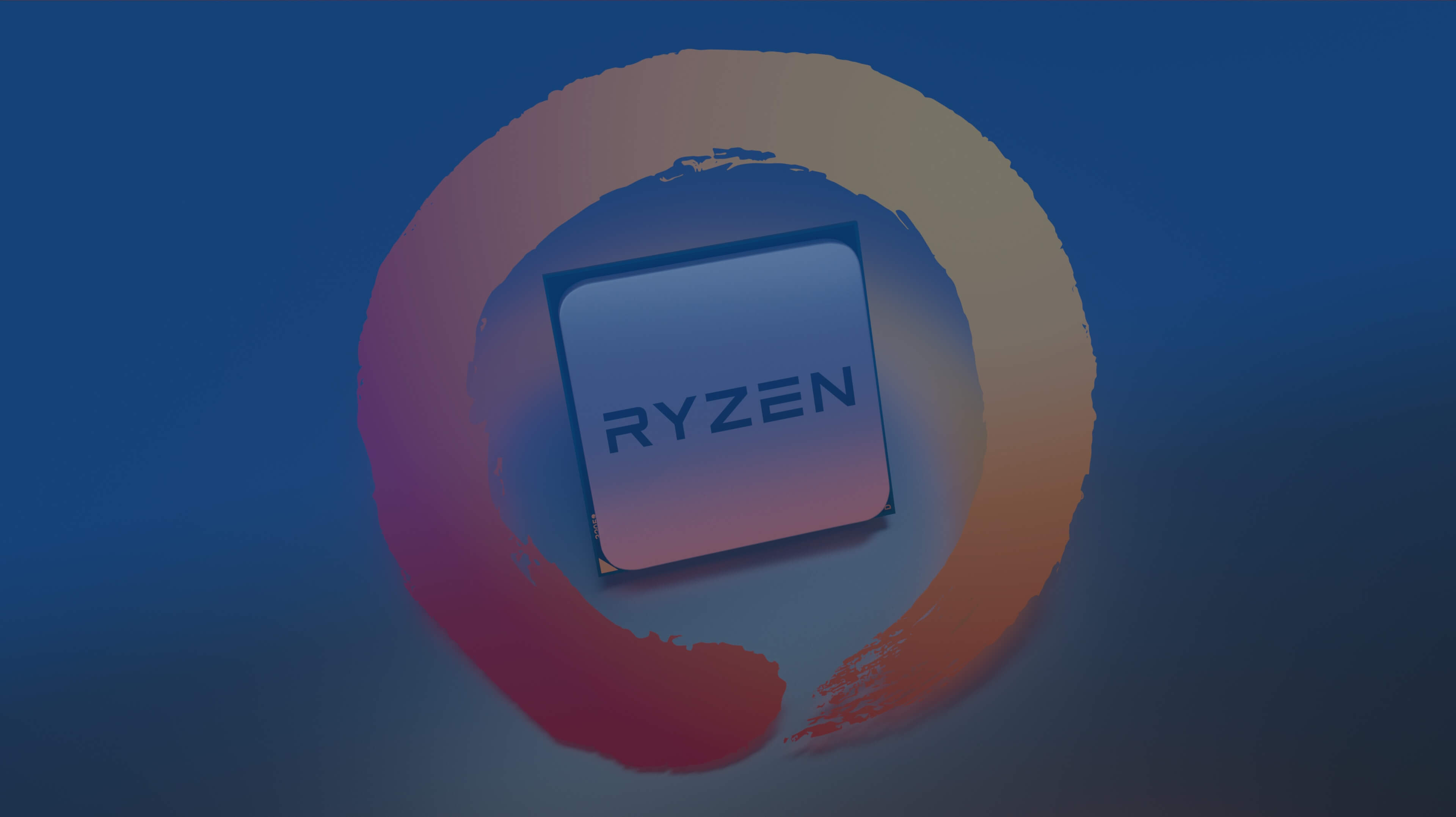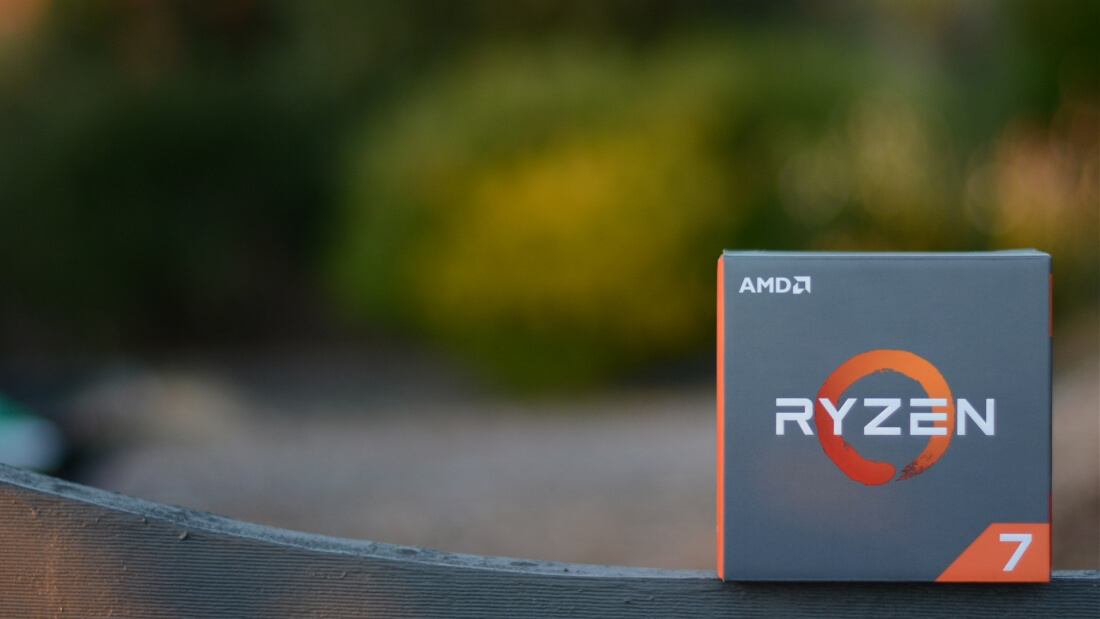Taking Averages, Making Conclusions

The average data above is not meant to be conclusive, but I know many of you really like it when I take all the games tested and provide an overall perspective of what we've been able to gather. From the 16 games tested we see that disabling SMT on the 1800X resulted in 3% more performance for the average frame rate and just 1% for the minimum.
The effectiveness of turning off SMT varied from game to game and we hope that it won't be long before SMT stops being a burden for proper gaming performance (a software patch should do). Based on the data above, Ryzen 7 1800X is on average 12% slower than the Core i7-6900K on gaming titles, which seems in line with what we found originally at 1080p.
No, this doesn't reflect real-life gaming scenarios for a high-end GPU today when you'll likely be gaming at higher resolutions and with a certain level of GPU bottleneck, but it does represent where Ryzen stands in raw gaming performance.

When gaming at 1440p things even out considerably as the GPU becomes a bigger factor in the equation. Here the Ryzen 1800X was just 4% slower than the 6900K and disabling SMT actually put the 1800X on par with the 6600K and 5960X.
The State of Ryzen for PC Gaming
As noted in our full Ryzen review, at this point we're waiting for software optimizations and AMD promises they're coming. Of course, the company also said that about Bulldozer, but Ryzen appears to be in a much better situation.
Fixing SMT support should be a relatively easy first step and it will help improve many of the results. Ryzen's overall average performance didn't look great but that's because the results in some games were actually hurt by turning off SMT. Those titles included Arma 3, Battlefield 1, Mafia III and Watch Dogs 2.
Conversely, disabling SMT boosted performance to some extent in Deus Ex: Mankind Divided, F1 2016, Far Cry Primal, Gears of War 4, Grand Theft Auto V, Overwatch and Total War: Warhammer, while we saw virtually no performance change in Civilization IV, For Honor, Hitman, Mirror's Edge Catalyst and The Division.
The key thing to note when comparing Ryzen against Intel CPUs is that the 1800X trails the 6900K by 12% at 1080p yet moving to 1440p shrunk that margin to a nearly insignificant 4%. You can likely guess what would happen at 4K.
The more affordable Ryzen 7 1700 chip is going to be an awesome option for folks who aren't necessarily focused on high refresh rate gaming, but who want to play at resolutions up to 4K using a mid-range GPU. For those scenarios, I'd be inclined to pick the Ryzen 1700 over the Core i7 7700K as it feels like a safer bet long term, not to mention that Ryzen's productivity performance is much stronger. However, if I were specifically interested in 1080p or 1440p 144Hz gaming, then Intel's 7700K would be the better choice.
We'll continue to follow Ryzen closely as it matures and report back with our findings. Rest assured, this isn't the last you've heard about AMD's new processors.

